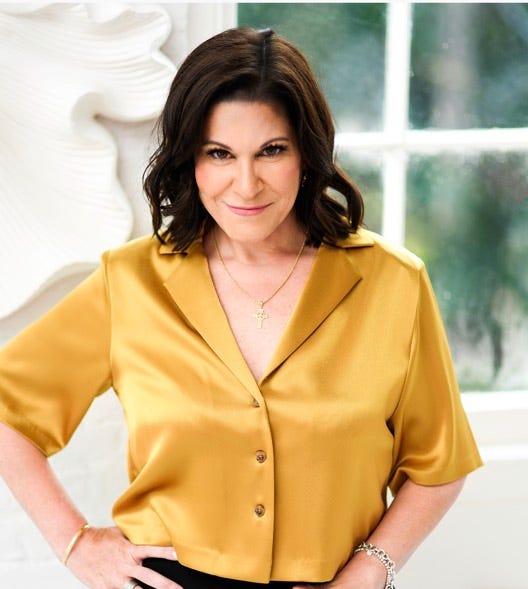Breaking the Mold: Dr. Patti Fletcher on ‘Trad Wives’ and the Fight for Women’s Agency
Beyond the podcast
This article features exclusive insights from Dr. Patti Fletcher that were not included in our recent podcast episode. It offers a deeper look into her views on the “trad wife” movement and her personal journey.
The term “trad wife” has been making waves on social media platforms like TikTok and Instagram. It refers to women who embrace traditional gender roles, choosing to stay at home, care for their husbands, manage the household, and often present themselves in a 1950s aesthetic. This resurgence seems puzzling to many, especially given the long-standing fight for gender equality. Dr. Patti Fletcher, author of Disruptors: Success Strategies for Women Who Break the Mold, offers her perspective on this phenomenon.
“Women like me who really believe in feminism—which again is an ‘and’ equation, not an ‘or’ equation—it’s for everybody,” Dr. Fletcher says. She emphasizes that the core of feminism is about choiceS. “I decide, right? It’s all about agency of choice.”
Dr. Fletcher questions the origins of the so-called traditional wife role. “Who the f**k decided what a traditional wife is?” she asks, challenging the societal norms that have dictated women’s roles for generations.
While the “trad wife” movement purports to embrace simplicity and traditional values, Dr. Fletcher points out a paradox. “They wear like prairie kind of cultish outfits, right? They tend to have long hair, and by the way, they’re making money because they become social media influencers,” she notes. Despite advocating for traditional roles, many “trad wives” leverage modern platforms to build personal brands and generate income.
The discussion extends to the influence of religious texts on these choices. Dr. Fletcher acknowledges the complexities of interpretation when considering women who literally follow the Bible. “Doesn’t the Bible also call out that women are the teachers, right? So they’re very much in a teacher role,” she says. “What are teachers? They are leaders.”
She highlights the issue of agency once more. “It is truly for me about—is the message that you give up your decision-making agency and defer to someone else to make your life decisions for you?” Dr. Fletcher asks. She stresses that the critical point is whether women choose this path freely or if societal pressures condition them.
A Personal Journey Rooted in Resilience
Her own family history deeply informs Dr. Fletcher’s insights. Growing up in a small suburb on the south coast of Massachusetts, she was raised by parents from rich cultural backgrounds. Her mother was a first-generation Armenian American whose family was profoundly affected by the Armenian genocide. Her grandmother, orphaned during the genocide, had all decisions in her life made by men.
“My grandmother was orphaned at six months old,” Dr. Fletcher recalls. “She was never allowed to have a job. She came to this country at 19, put into an arranged marriage with a 31-year-old crazy man. She was never allowed to transform.”
This legacy had a profound impact on Dr. Fletcher. “Here I am, this color of my skin—let’s face it, it’s a racist country—I’m a white woman born in 1969 in America with two ears that can’t stop listening, a brain that can’t shut down its curiosity, and a mouth that will not shut,” she says. “I knew there that I personally could not live if I did not do everything I could to create a global platform.”
Challenging Systemic Barriers
Dr. Fletcher is candid about the systemic barriers women face. “We have a lot of power, but we’re not allowed to be in power,” she states. She references statistics that highlight women’s influence: “Women are responsible for 90 percent of all consumer buy decisions. We have so much power. We’re not in power. We’re in power when we use our dollar bills when we collectively get together.”
She also addresses the sense of entitlement felt by some men who resist changing societal dynamics. “When you’re disrupting someone’s status quo that they are thriving in or at least comfortable in, they’re going to come at you,” Dr. Fletcher explains. “When you grow up in a system that is meant for you, you have a sense of entitlement.”
Redefining Leadership and Success
Dr. Fletcher’s book focuses on helping women harness their own power and redefine what success looks like. “I can’t stand the word ‘empower.’ I can’t stand it. It makes me sick,” she asserts. “Because ‘empower’ essentially means… I’m going to give you power. And guess what else? I’m going to take that away.”
Instead, she encourages women to recognize the power they already possess. “You got it. How are you going to use it? And it’s not going to be the way you’ve been conditioned to use it,” she says.
A Call to Action
Reflecting on her experiences and the current social climate, Dr. Fletcher believes it’s time for significant change. “We are in a country right now where the people who were in a system that was meant for them are being asked to disrupt that system, and they are pissed,” she observes. “It makes me wonder if it’s time for a revolution.”
Her message is clear: women must continue to challenge traditional norms and advocate for their own agency. Whether she questions the "traditional wife” movement or pushes for systemic changes in the workplace, Dr. Fletcher champions the idea that women should define success on their own terms.
This article offers exclusive content not covered in our podcast interview with Dr. Patti Fletcher. For more insights, listen to the full episode and join the conversation on how we can contribute to meaningful change.





